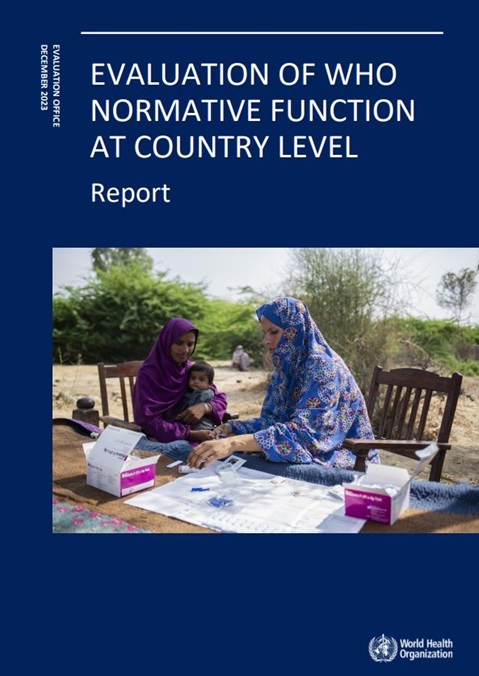WHO normative function at the country level: Evaluation report

Overview
Evaluation of WHO’s normative function at the country level
The WHO Evaluation Office presents a comprehensive evaluation of the organization’s normative function at the country level. The evaluation sheds light on the impact and effectiveness of WHO's normative products within individual countries and offers valuable insights and recommendations.
Why Evaluation of WHO’s normative function at the country level?
WHO's normative function is at the core of its mandate and constitution. To ensure its relevance and effectiveness, periodic assessments are crucial. Building upon a previous global evaluation conducted in 2017, this evaluation aims to understand and strengthen WHO's normative role at the country level. It aligns with WHO's commitment to prioritize countries in its work.
What methodology was used?
A theory-based approach was used, mapping documented changes against the expected contributions of WHO's normative products. The evaluation focused on six normative products, conducting case studies in seven countries (Ethiopia, Jordan, Maldives, Pakistan, the Philippines, Rwanda and Uganda), and consulting over 275 stakeholders.
The evaluation included the following normative products/instruments:
- 22nd WHO Model List of Essential Medicines (EML), 2021;
- Guidance for conducting a country COVID-19 intra-action review (IAR), 2021;
- HEARTS, Technical package for cardiovascular disease management in Primary Health Care (PHC), 2020;
- Mental Health Global Action Programme (mhGAP) Intervention Guide, 2016;
- Guidelines for the treatment of malaria, 2015; and
- WHO Guidelines for Indoor Air Quality: Household fuel combustion, 2014.
Key Findings and Conclusions
The evaluation yielded crucial insights
- WHO has made progress in aligning the prioritisation of normative products with Member States' priorities.
- Normative products from WHO are highly valued and trusted by Ministries of Health, but feedback loops and end-user needs should be considered.
- These products have been widely used at the country level, although adaptation to specific contexts is often necessary.
- There is evidence of positive contributions to health outcomes, but more rigorous monitoring and evaluation are needed.
- Gender equality and health equity considerations need to be integrated more effectively into WHO's normative work.
Related documents
Related
